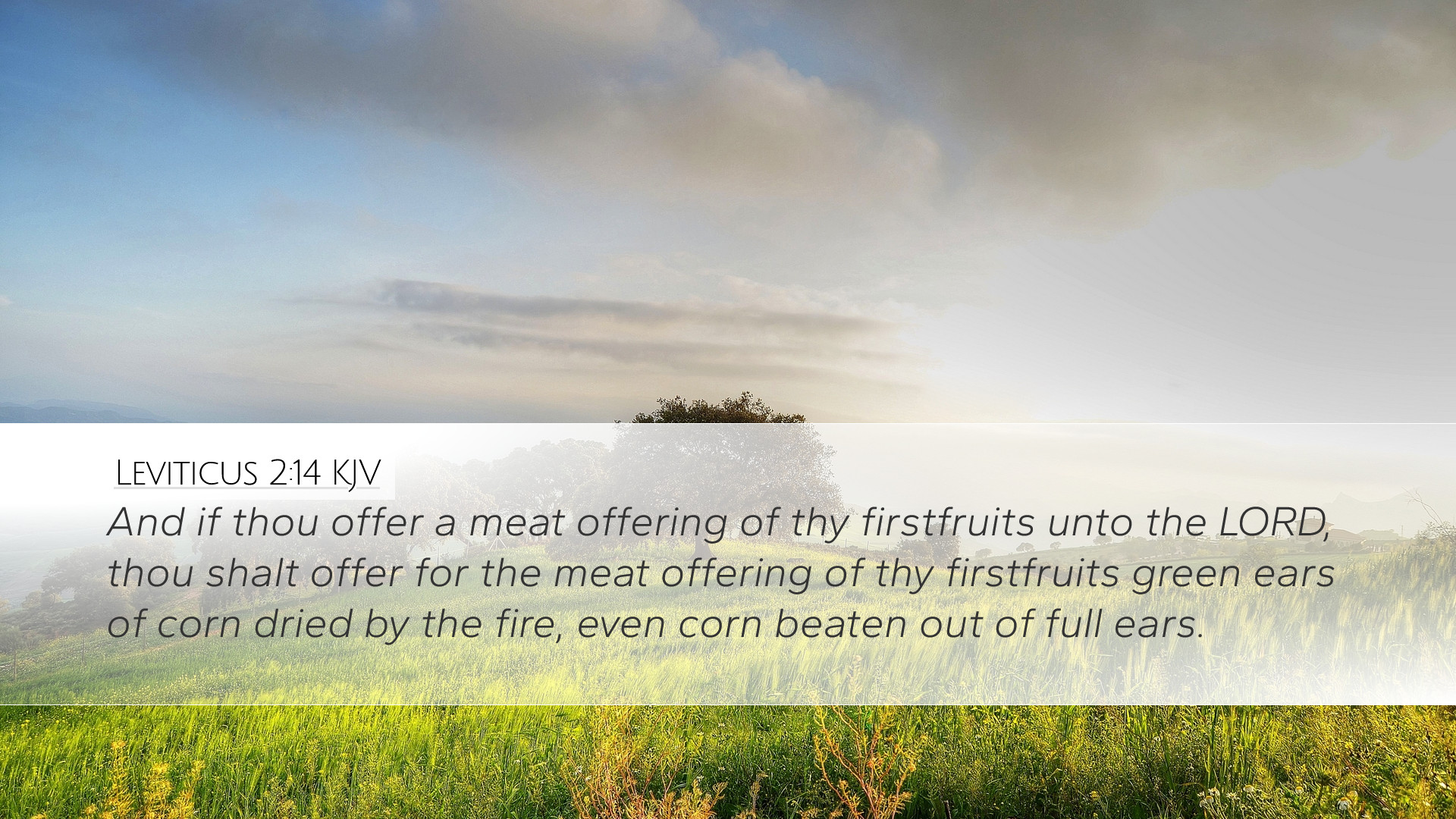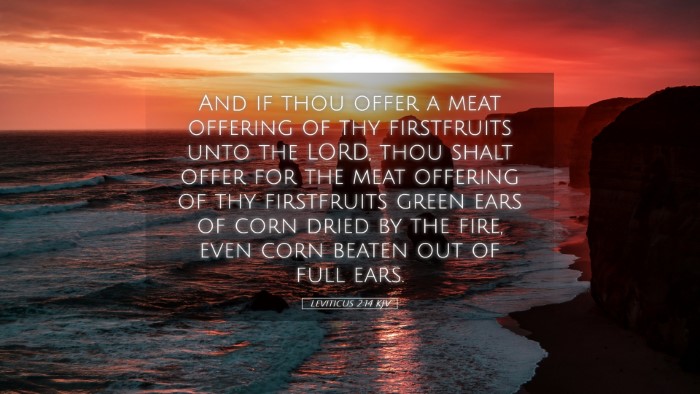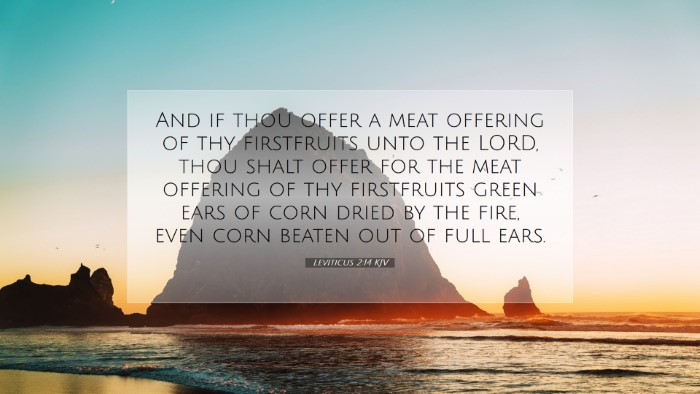Commentary on Leviticus 2:14
Verse: "And if thou offer a meat offering of thy firstfruits unto the LORD, thou shalt offer for the meat offering of thy firstfruits green ears of corn dried by the fire, even corn beaten out of full ears." (Leviticus 2:14, KJV)
Introduction
This verse addresses the offerings referred to as "meat offerings," which are better understood as "grain offerings." It emphasizes the significance of the firstfruits, highlighting the recognition of God's provision and the dedicated acknowledgment of His sovereignty over agricultural abundance.
Insights from Matthew Henry
Matthew Henry, in his commentary, points out that the offerings of the firstfruits are an expression of gratitude to God. The use of the term "firstfruits" indicates that the offeror is presenting to God the very best yield of the harvest, symbolic of the recognition that all good things come from Him. Henry notes how this act of offering illustrates humility and dedication.
He emphasizes that the "green ears of corn" symbolize freshness and the early harvest. By presenting the first harvest, an acknowledgment is made of the hope for a bountiful season to follow, which speaks volumes to the nature of faith.
Insights from Albert Barnes
Albert Barnes elaborates on the preparation of the grain offering. He explains that the grain must be "dried by the fire," suggesting that offered goods must undergo purification and preparation before presenting them to God. This act resembles a form of sacrifice and indicates readiness and commitment to God’s service.
Barnes also notes that the process of "beating out" the corn ensures that it is prepared with care, reflecting the seriousness with which the offeror approaches worship. He further emphasizes the significance of using the firstfruits as an offering because it shows priority given to God over personal gain and prosperity.
Insights from Adam Clarke
Adam Clarke highlights that this instruction serves both a ceremonial and spiritual purpose. The use of ears of corn as a representation of the people's labor emphasizes the connection between divine blessing and human effort. Clarke argues that it served to remind the Israelites that their sustenance comes from God, and their worship should be act of dedication.
Moreover, Clarke draws attention to the notion of "beaten out of full ears," suggesting that maturity and readiness are essential in all offerings made to God. This principle reinforces the idea that believers should offer not only the best of their harvest but also the totality of their spiritual maturity and dedication.
Theological Implications
This verse, embedded in the broader narrative of Leviticus, underscores themes of holiness, community, and the divine-human relationship. It places emphasis on ritual as a means of connecting with God and highlights the importance of offering one's best to Him.
- Holistic Offering: The requirement for a grain offering shows that worship encompasses all aspects of life, not just the spiritual.
- Recognition of God's Sovereignty: By dedicating the firstfruits, worshippers acknowledge God's lordship over creation and their lives.
- Symbol of Gratitude: The firstfruits represent gratitude, pinpointing a significant principle in worship: giving back to God what He has provided.
Conclusion
Leviticus 2:14 serves as a vivid reminder of the importance of honoring God with our best. This verse invites pastors, students, theologians, and scholars alike to reflect on their own offerings—both materially and spiritually. Just as the Israelites were called to offer from the first of their harvest, so are modern believers called to present their lives, talents, and resources back to God as an act of worship and covenant fidelity.


